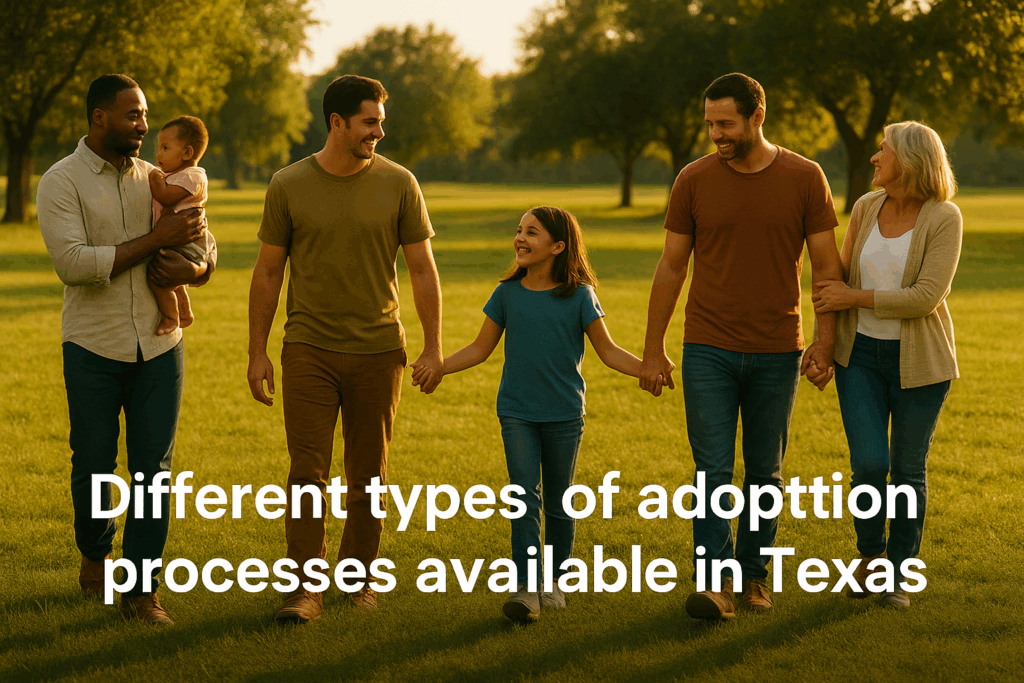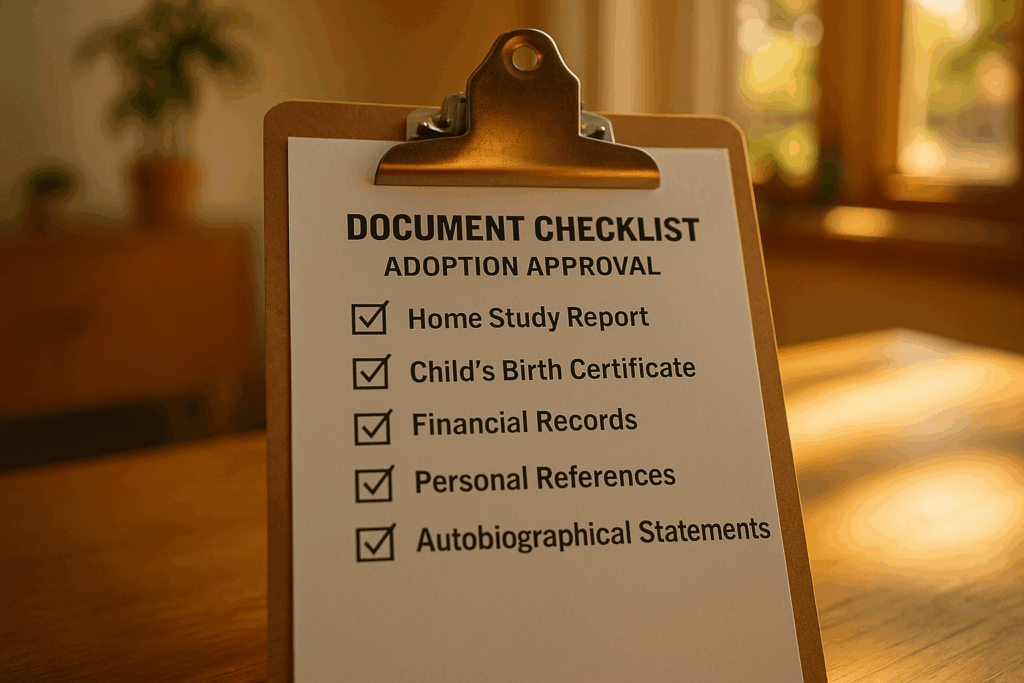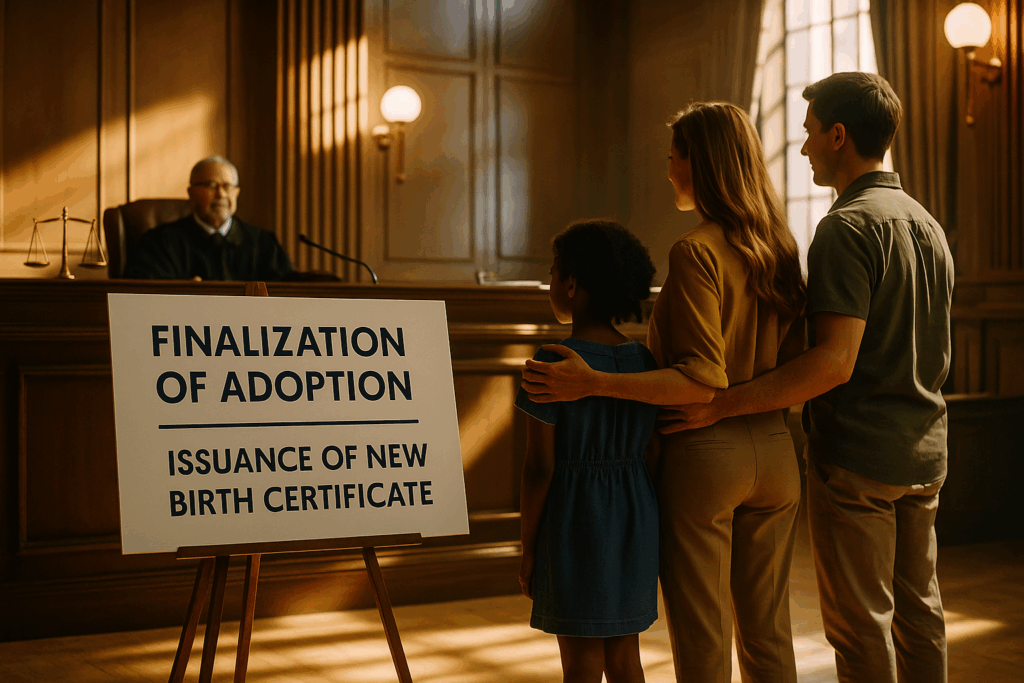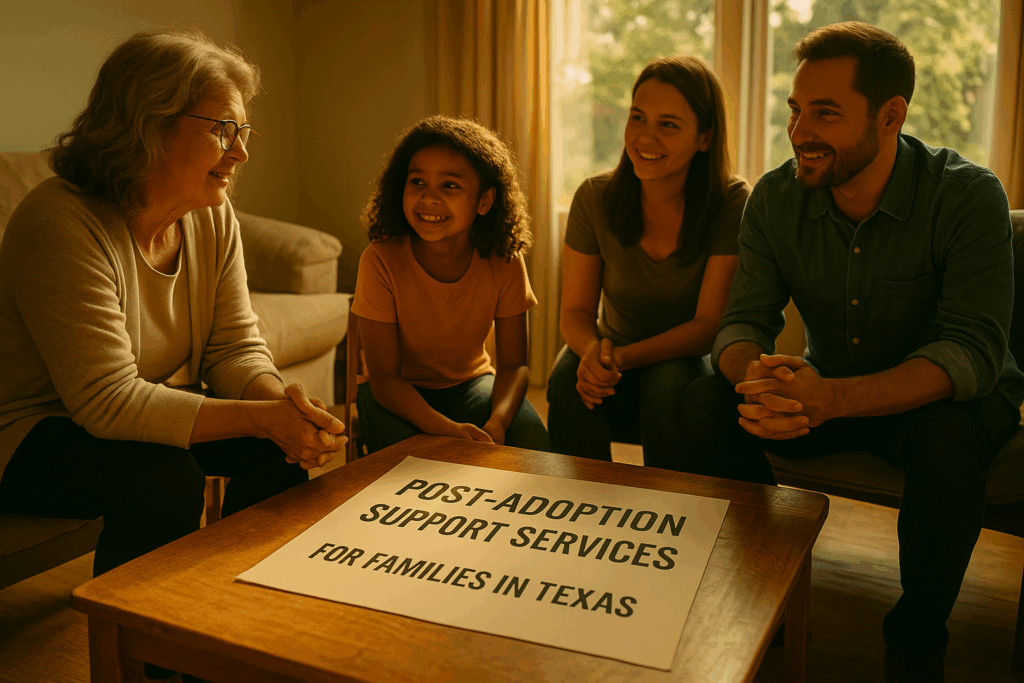
Ever feel like raising a child is a full-time job with no instruction manual—especially when you’re balancing school drop-offs, shared custody, and big life decisions? You’re not alone. Boldly navigating family life starts with understanding the essentials, like knowing exactly how to adopt a child in Texas when divorce, custody, and school routines all intersect.
Whether you’re a stepparent hoping to make it official, a newly single parent exploring adoption, or navigating co-parenting while supporting your child’s education, this guide is here to walk you through every legal twist and emotional turn.
Here’s the short version: adoption in Texas is doable, even during or after divorce—and when handled with care, it can protect your child’s academic stability and emotional health. Inside, you’ll find actionable tips, legal insights most families don’t know, and real stories from local parents who’ve walked this path before you. Stay with us, because your family’s next chapter might begin right here—with the knowledge, support, and advocacy of a Texas law firm that’s dedicated to educating families and protecting futures.
Key Takeaways
- The adoption process in Texas requires legally terminating biological parents’ rights and involves several critical steps, including consultations with family law attorneys and a home study program.
- Prospective adoptive parents must meet specific eligibility criteria, including age, financial stability, and a clean background check, to ensure the safety and welfare of children being adopted.
- Texas offers various types of adoption, such as private, foster care, stepparent, and relative adoptions, each with its own unique processes and requirements, emphasizing the need for comprehensive documentation and legal compliance.

Your Adoption Journey Starts Here
Don’t navigate the adoption process alone. Schedule a consultation today and receive the expert guidance and support you need to build the family of your dreams.
Understanding Adoption in Texas
Adoption in Texas legally transfers parental rights from biological to adoptive parents, creating a permanent parent-child relationship. This requires the rights of the biological parents to be legally terminated, either voluntarily or involuntarily. Consulting a family law attorney is crucial, as each adoption case has unique circumstances and legal considerations.
The adoption process in Texas involves several reports and studies to ensure that the adoption serves the child’s best interests. This thorough approach underscores the importance of providing a stable, loving home for many children who need it most adoptions.
A thorough understanding of the adoption process helps prospective adoptive families prepare for the journey ahead, equipping them with the knowledge and confidence to tackle any challenges, guided by adoption professionals.

Eligibility Criteria for Adoptive Parents
Texas’ eligibility criteria for adoptive parents aim to ensure children are placed in safe and supportive homes. Prospective parents must be at least 21 years old and can be single or married. They must also demonstrate financial stability and responsibility to provide a nurturing environment for the child.
In addition to financial stability, prospective adoptive parents must:
- Complete a criminal history background check
- Complete an abuse/neglect check
- Provide personal references from both relatives and non-relatives to further assess the suitability of the adoptive family
Meeting these criteria ensures the adoption process prioritizes the child’s safety and well-being, laying a solid foundation for a successful adoption journey.
Types of Adoption in Texas
Texas offers several types of adoption, each with unique steps and considerations. Private adoptions usually involve placing a child directly from birth parents to adoptive parents, facilitated by an agency or attorney. This option often appeals to those wanting to adopt a newborn, allowing for a direct, personal connection with the birth parents.
Foster care adoption is another common path, offering options like foster-to-adopt or direct adoption. Foster-to-adopt involves initially fostering a child with the intention of adopting a child, while direct adoption involves children already legally free for adoption. This path helps children who have faced neglect or abuse find loving, supportive homes.
Other types of adoption in Texas include:
- Stepparent adoption, where a stepparent adopts their partner’s child.
- Relative adoption, allowing family members like grandparents or aunts to adopt and maintain family ties.
- International adoptions, which are more complex and involve compliance with both U.S. and the child’s native country laws, typically requiring a Hague-accredited agency.
Each adoption type presents unique opportunities and challenges, enabling adoptive parents to choose the path that best fits their family dynamics and goals, including open adoptions, an adoption plan, adoption opportunity, and semi open adoptions.

The Home Study Process
The home study process is crucial in ensuring that the adoptive family can provide a safe and supportive environment for the child. This process includes:
- Visits with all household members
- Requirement for both domestic and international adoptions in Texas
- Conducted by a licensed social worker
- Assessment of the home and family environment to ensure it meets the necessary standards
Key elements of the home study include:
- Home inspections to assess the safety and suitability of the living environment
- Background checks for all household members aged 14 and older
- Personal interviews to evaluate the motivations and preparedness of potential adoptive parents
The home study process typically takes between three to six months and includes preparations like ensuring smoke detectors and a secure environment for children during a certain period.
Completing this process is a significant step towards becoming an adoptive family, reassuring hopeful parents that the home is ready for a new addition.
Document Checklist for Adoption Approval
A well-organized document checklist is crucial for adoption approval in Texas. Key documents include:
- The home study report
- The child’s birth certificate
- Financial records
- Personal references
- Autobiographical statements
Prospective adoptive parents must provide a few requirements to demonstrate their licensing requirements to care for an adopted child as an adoptive parent.
Having all necessary documents readily available and organized can expedite the adoption process and prevent delays. This checklist should also include general documents like driver’s licenses, birth certificates for all household members, and proof of health insurance.
Complete and accurate documentation is crucial for a smooth adoption journey, helping prospective adoptive parents move closer to welcoming a child into their home. This is a complete guide to understanding the necessary steps.

The Matching Process
The matching process is a pivotal stage in the adoption journey, pairing prospective adoptive families with children who best fit their capabilities and the child’s needs. The Texas Adoption Resource Exchange (TARE) plays a key role, connecting children in foster care with families who can meet their emotional and developmental needs.
Child Protective Services (CPS) organizes selection staffing meetings to evaluate and determine the best match for a child. Once a match is made, the child’s placement phase allows both the child and the adoptive family to adjust to their new roles and dynamics.
This process prioritizes the child’s best interests, fostering successful and lasting adoptive relationships.
Filing the Adoption Petition
Filing the adoption petition is a crucial legal step. The petition must be filed in the court of the county where the child resides. Along with the petition, adoptive parents need to submit a Certificate of Adoption form and a certified copy of the final Decree of Adoption through their attorney or district clerk to legally adopt a new birth certificate for the child.
A complete and correct application for a new birth certificate is crucial, as improper submissions can lead to rejection and require resubmission. This step solidifies the legal relationship between the adoptive parents and the child, paving the way for the adoption’s finalization.
Court Hearings and Termination of Parental Rights
Court hearings are integral to the adoption process, addressing the termination of parental rights legally. Once the adoption petition is submitted, a hearing date is typically set within a few weeks. Adoptive parents should be prepared to pay filing fees, which vary by county in Texas.
The termination of parental rights can be voluntary, termed ‘relinquishment,’ or involuntary, if a parent is found to have abandoned or endangered the child. Governed by Chapter 161 of the Texas Family Code, this process requires a court order to be finalized. Properly following all legal steps is crucial for the smooth progression of the adoption process.
Finalization of Adoption and Issuance of New Birth Certificate
The finalization hearing of the adoption is a momentous occasion, where:
- The court issues a final decree legally recognizing the adoption.
- The court’s primary concern during this decision is the child’s best interest.
- After finalization, a new birth certificate can be requested, reflecting the adoptive parents’ names and cementing the legal parent-child relationship.
If the birth certificate application is incomplete or incorrect, it can be rejected, requiring resubmission. This final step marks the official beginning of a new chapter for the adoptive family and their connection to the birth family, celebrating the union and the start of a lifelong bond.

Post-Adoption Support and Services
Post-adoption support and services are vital for the long-term success of adoptive families. In Texas foster care, families who adopt through the Department of Family and Protective Services can access:
- Assistance with adjustment issues and coping strategies related to the child’s previous trauma
- Crisis intervention services for urgent situations
- Post placement services for urgent situations
Adoptive families may access the following support services:
- Participation in parent groups
- Counseling services tailored to their needs, provided by local assistance organizations
- Financial assistance programs, including a reimbursement program for expenses related to adopting children with special needs and birth families.
These support services ensure that adoptive families have the resources and community support needed to thrive.

Real-Life Stories and Testimonials
Real-life stories and testimonials offer inspiration and practical insights for prospective adoptive parents. For instance, a grandmother shared her experience of adopting her granddaughter, highlighting how quickly Bryan Fagan’s law office arranged an emergency hearing within weeks. Judy, another client, described the adoption process as smooth and family-like, emphasizing the supportive atmosphere provided by the staff in adoption cases.
Samantha and Chris L. praised the Law Office of Bryan Fagan for transforming their complex international adoption process into a joyful experience, helping them bring their daughter home. These stories reflect Bryan Fagan’s law office’s commitment and compassion, inspiring prospective parents on their adoption journey.
How the Law Office of Bryan Fagan Supports You
The Law Office of Bryan Fagan provides personalized legal representation tailored to each client’s unique needs throughout the adoption process. They offer emotional support alongside legal guidance, recognizing the personal nature of the adoption journey. The office provides a complimentary case evaluation to discuss adoption specifics, helping prospective parents understand their options with the assistance of an adoption attorney.
Clients benefit from a dedicated support team that maintains communication and offers timely updates during their full service agency adoption journey. The firm’s focus on ensuring clients feel informed and confident at every stage, from initial inquiries to finalization, demonstrates their commitment to supporting adoptive families.
Conclusion:
Parenting doesn’t come with a roadmap—but when it comes to adoption, custody, and keeping your child’s education on track, having a trusted legal guide makes all the difference. If today’s post helped you feel a little more informed—or a little less overwhelmed—you’re already taking a powerful step in the right direction.
Whether you’re growing your family through adoption, working through a divorce, or just trying to make sure your child thrives in school no matter what life throws your way, you deserve support that’s not only legally sound but truly understands what families go through. At The Law Office of Bryan Fagan, PLLC, we don’t just draft paperwork—we walk with you through real-life decisions that shape your child’s future.
If something in this post sparked a question or gave you clarity, don’t let it stop here. Let’s talk. We offer free consultations and real conversations—no judgment, no pressure, just a team that’s here to help you move forward with confidence.
And if you’re still wondering whether now’s the right time to make that next move? Just remember: your child doesn’t need perfect—they need present, prepared, and protected. We’ll help you take care of the rest.
Frequently Asked Questions About Adopting a Child in Texas
How much does it cost to adopt a child in Texas?
The cost to adopt a child in Texas varies depending on the type of adoption. Private adoptions can range from $20,000 to $50,000, while adopting through the Texas foster care system may cost little to nothing, with many expenses covered by the state.
How to adopt a child in Texas for free?
You can adopt a child in Texas for free through the state’s foster care system. The Texas Department of Family and Protective Services (DFPS) covers most of the expenses, and you may also qualify for subsidies, reimbursements, and post-adoption support services.
What disqualifies you from adopting a child in Texas?
Factors that may disqualify someone from adopting in Texas include a criminal history involving abuse, neglect, or violence, failure to pass a home study, unstable finances, or an inability to provide a safe and supportive home environment.
What are the requirements to adopt a child in Texas?
To adopt in Texas, you must be at least 21 years old, financially stable, pass criminal and abuse/neglect background checks, complete a home study, and provide references. You can be single, married, or divorced.
How long is the wait to adopt a baby in Texas?
The wait to adopt a baby in Texas can vary significantly. Private infant adoptions often take 1 to 2 years, while adopting a legally free child through foster care can happen in as little as a few months, depending on the match.
What is the cheapest form of adoption?
The cheapest form of adoption is through the public foster care system. In many cases, the state covers most of the fees, and you may also receive ongoing financial assistance and medical benefits for the child.
Do you get a monthly check when you adopt a child in Texas?
Yes, families who adopt through Texas foster care may be eligible for monthly adoption assistance payments, especially if the child has special needs. These payments help support the child’s care and needs.
Can you adopt a 2 year old?
Yes, you can adopt a 2-year-old in Texas, especially through foster care or relative adoption. Younger children are available, but the process may take longer due to high demand.
Where is it easiest to adopt a child?
The easiest place to adopt depends on your circumstances, but adopting through your local foster care system is generally the most accessible and affordable route in the U.S., including in Texas.
Bryan Fagan is a Texas family law attorney with a heart for adoption—inspired not just by his legal career, but by his own family story. Growing up in Atascocita with two adopted brothers, Bryan learned early the profound meaning of chosen family. His passion for justice was sparked by John Grisham’s The Pelican Brief, and he became the first lawyer in his family, balancing night classes at South Texas College of Law while caring for his grandmother with Alzheimer’s.
Today, Bryan brings that same dedication to his practice, guiding families through adoptions, custody disputes, divorces, and complex marital agreements. A certified member of the College of the State Bar of Texas, he combines elite legal expertise with genuine empathy—drawing from his roles as a husband, father of three, and advocate for families facing false CPS allegations.
Based in Houston, Bryan is actively involved in the Houston Bar Association’s Family Law Sector and statewide family law organizations. Whether finalizing an adoption or protecting parental rights, he believes the law should reflect the deepest values of home, commitment, and love.

